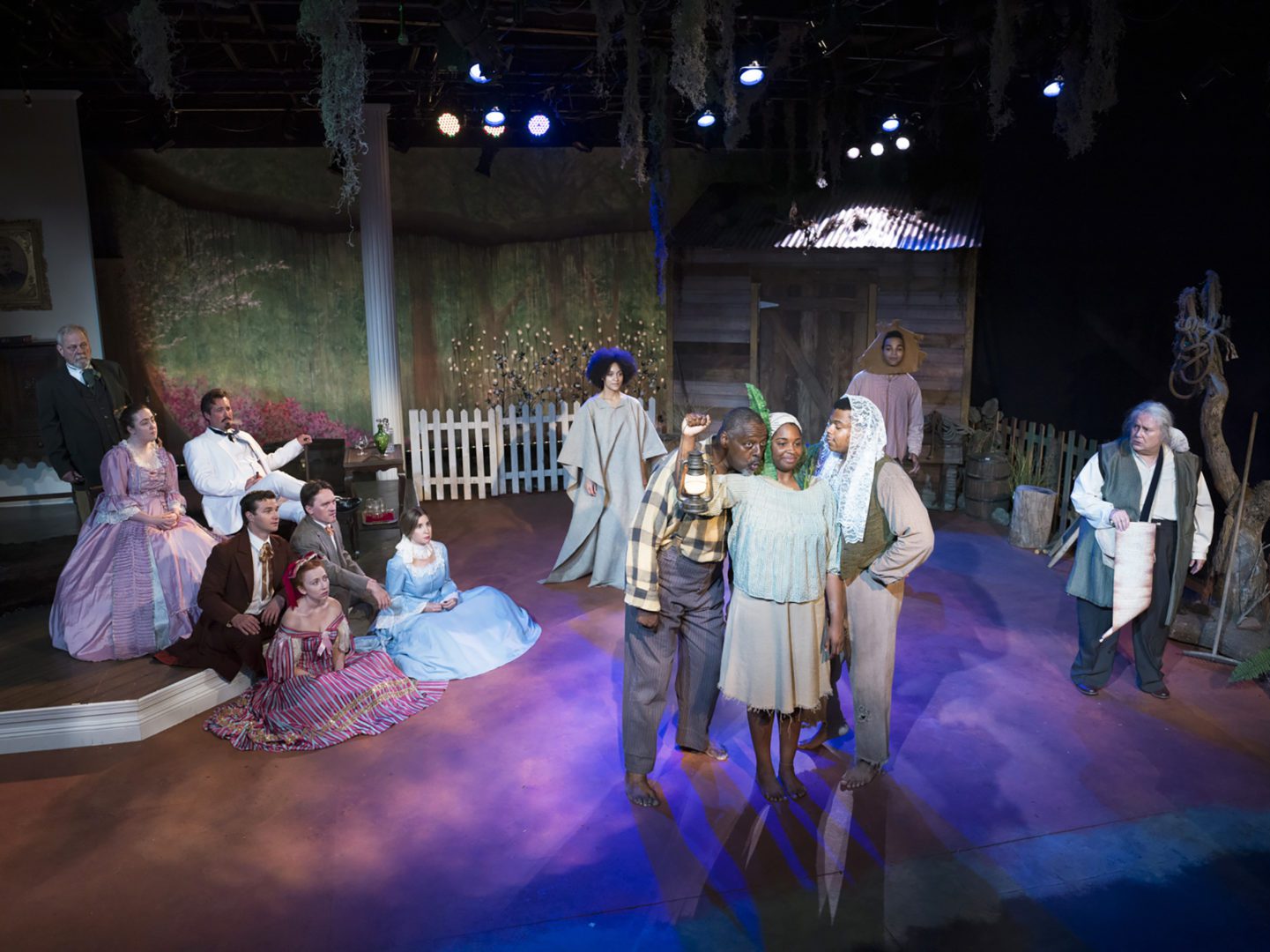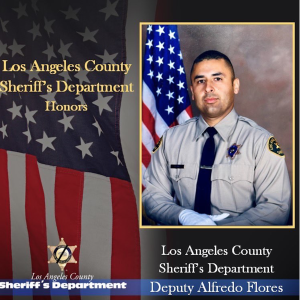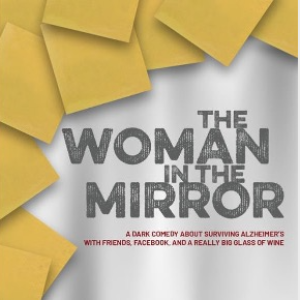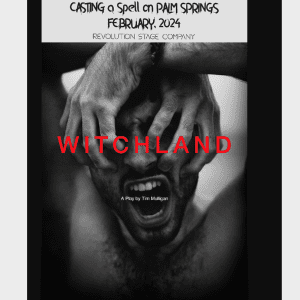 View Winners →
View Winners → 
Shakespeare is probably most well known for making teenagers frustrated and bored in high school, but his works have, and always will endure in the theater. One of his works, “A Midsummer Night’s Dream,” is known for being a humorous, entertaining comedy filled with magic and wonder.
We caught up with director James Fowler, whose production ”A Midsummer Night’s Dream” is currently running at the Atwater Village Theater until Aug. 13. He has decided to take the play’s setting of Athens, Greece during the 12th century and change it to Athens, Ga. circa 1855; a time period still in the horrific era of slavery.
Hey SoCal and Fowler convened to discuss what led him to approach the play in this direction.
For a list of dates and times, visit the online box office here.
From Greece to Georgia
Hey SoCal: Where did you get the idea to adapt “A Midsummer Night’s Dream” in this way?
James Fowler: I directed it a couple of times before once in Sierra Madre at the Sierra Madre memorial park and there were a few lines that would stick out to me. I’m constantly thinking about how we could see iterations of classical works with BIPOC (Black, Indigenous, and people of color) peoples and I remember this line that struck me from the show: “that would hang us every mother’s son.” That came up time and time again.
I was thinking about the job of the mechanicals (the actors of the play-within-a-play). One is called a tinker, one is called a bellows-meander, one is a weaver. So you start to see all of these trades that enslaved peoples would have had. I started to think more and more about Athens, Ga., as opposed to Athens, Greece, and asked the question, you know, why can’t we believe this magic as it relates to enslaved peoples, the way we believe it about Greek people?
Hey SoCal: Thematically, how much of the play is still present in this production?
Fowler: I’d say a lot of it is still present. I changed one word from India to Africa, but it still scans. So we’re good there. It’s actually more intact than a lot of the productions I’ve seen and directed in the past.
There’s a character; it’s called the Indian child or the changeling child, I should say. That character is in this play as a prop as Titania is now a wet nurse who breastfeeds this child. It’s all still there. It’s just set in a different world.
Theseus is now a judge in this world. Demetrius is a young, ambitious attorney. Egeus is a drunken old farmer trying to marry his southern belle daughter Hermia up. Helena is a girl of the town. Lysander is the hot guy of Athens, Ga.
We have a small-town vibe to the show. The contention between Hippolyta and Theseus is that Theseus has come in and taken over this plantation, which was part of Hippolyta’s dowry. We keep that theme of contention between them, and of course, the enslaved African characters, who have backstories for them as well that sort of link them to this world.
But I keep telling folks that it is still Midsummer and is still just as funny. People were afraid when they heard this concept that it wouldn’t be comical. It’s not that we’re poking fun at slavery or fetishizing slavery. We’re looking at what the dream world would have been for these people.
And then at the end of the show, showing you what the reality of that world was for those people.
For a list of dates and times, visit the online box office here.
Hey SoCal: Would you say the play has a hopeful tone to it, despite having such a horrific setting?
Fowler: I would dare to say that it does. The puns are all still there, the comedy is all still there. There’s some really funny stuff that happens with the mechanicals. All the funny stuff that happens in the show, I believe it’s still funny. The play within a play is still hysterical, the lovers’ quarrel is still hysterical. All of that is very much present.
I’m glad you asked that question because that was indeed an egregious and terrible era. I think about many eras, and there are many terrible eras in which we set plays. Not to make the comparison between what the enslaved peoples went through and what the Greeks went through, but if you look at what the Greeks went through, in their own ways, it was a tragic time. Yet we were able to place this comedy in the world of Athens, Greece.
I would say that I’m not focusing on us laughing at the circumstances by which these people find themselves in. I want us to laugh at life, at the fact that each, and each place that we set this piece, it can still sort of have a ton of joy, and also, at the end of this show, we’ll have to reflect on what that world really was outside of the dream.
It’s the side that you never get to see. We’ve constantly seen the rape, and we constantly see the mutilation of black bodies. And we see all of this play out so frequently, and we don’t see anything else. We know that in this culture there was a lot of singing and we don’t know if there was a lot of laughter, but we get to create that story because it was stolen from us.
Hey SoCal: Was there any difficulty when you changed it from Greece to Georgia? Were any issues that arose?
Fowler: I thought it was quite simple. The play really does lend itself to it, you know. You’ll see there are so many lines, there are so many comments that really lend themselves to the era. The only difficult thing is that antebellum South is very expensive for a theatre company in Los Angeles to produce, in terms of costumes and sets.
It’s one of my favorite time periods; I look at it and I think it’s gorgeous. Jan Munroe, my set designer, pulled together this gorgeous set. We’ve got upstage, left this gorgeous lean-to, slave shanty with a tin roof. It’s just distressed with this gorgeous wood on it, and it will have Spanish moss hanging off of it.
Then upstage, you’ve got this gorgeous mural backdrop of these weeping willows with Azaleas around and a creek that runs through. Stage right we’ve got a platform with plantation pillars that’s all white with sort of this robin’s egg blue trim with a robin’s egg blue door.
Downstage, you’ve got this red sort of Georgia dirt clay color, with trees that sort of push out towards the audience and from the grid hanging Spanish moss, giving a real frontier land feel. But it really is a beautiful set and setting it in this time period was lovely working with not only Jan Munroe but also working with Bruce Dickinson, who is my props guy.
Hey SoCal: Are there other Shakesperean plays you’d also like to do something similar with?
Fowler: I haven’t really thought about it. I mean, there are so many. Oh, my goodness, Julius Caesar! Taming of the Shrew. Maybe not set in the antebellum south, however.
Downtown Repertory Theatre Company, a theatre company I’ve worked with quite frequently, does some really great interactive theater. We did a production of McB (Macbeth), I’m going to say McB, I’m not in the theater but just going to say it. We did a production of McB which was sort of set in a “Mar a Lago.”
A sort of horrible, terrible Trump thing. In which, McB was having this promotion and I had the opportunity and pleasure of playing him. That was really cool. Maybe not quite Antebellum south, but I’d like to set Julius Caesar in a bar where all the servers and waiters turn on him and take turns stabbing.
Hey SoCal: What would you want the audience to take from “A Midsummer Night’s Dream?” What would you want their reactions to be?
Fowler: Ideally, I want them to come and enjoy a night in the theater like any other night and finally enjoying it in a space in which more than just one person is represented. I’d like them to realize that we don’t have to burn down classic theater because we can make room for all kinds of people to tell these stories and tell their version of these stories.
I recently was talking to someone else who talked about how this new production of “The Fantasticks” had an LGBTQIA+ theme that really touched them because they finally got to see a bit more of themselves in something. I think that’s really important as we tell stories, and so I also want people to come and realize that they can see magic in a place they never thought they could.
You can reach Eloin Barahona-Garcia at eloin@beaconmedianews.com.









































































































